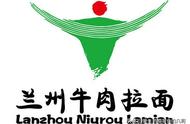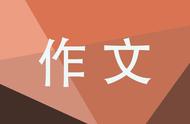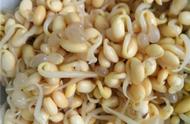英语学习先从简单点单词句子开始,同时语法也很重要!今天看看be动词用法及怎么把肯定句变否定句,如何把陈述句变疑问句!

口诀:
我用am,你用are,is连着他,她,它;
单数名词用is,复数名词全用are.
变疑问,往前提,句末问号莫丢弃
变否定,更容易,be后not莫忘记
疑问否定任你变,句首大写莫迟疑
be动词用法
“Be”除了原形的“be”之外,还有另外七种形式:am, is, are, been, being, was, were.
在句子中,“be”可以是主动词(The Principal Verb)或助动词(The Auxiliary Verb).
当主动词时,“be”在性质上属于接系动词(The Linking Verb), 后面要有名词、形容词、地方副词或短语作补足语(The Complement)。例如:
1. The man is a science teacher.
2. Mary's new dresses are colourful.
3. I have been there before.
4. Mother is in the kitchen now.
这四个都是陈述句,可以变成疑问句,方法简单,把主语和“be”或助动词对换位置即可:
5. Is the man a science teacher?
6. Are Mary's new dresses colourful?
7. Have I been there before?
8. Is mother in the kitchen now?
当“be”要在祈使句中出现时,它必须借重助动词“do”或“don't”之助,如:
9. Don't be silly!
10. Do be obedient!
11. Don't be a fool!
“Be”有两种缩写法,如下:
He's not...../He isn't....
You're not...../You aren't...
但“am not”的缩写法只有一个:
I'm not.
谈过了“be”作主动词的功能,现在看看“be”作助动词时,有些什么用法:
1.“Be 现在分词”以组成进行式时态(Continuous Tenses),如:
Tony's maid is washing his new car.
The children are playing in the field.
Samuel was eating when I came in.
We have been living here since 1959.
2.“Be 过去分词”以组成被动语态(The Passive Voice),如:
Her money in the drawer was stolen.
A number of good jobs are taken up byforeigners.
David studied in Taiwan but has been trained as a language lecturer in America.
Can all the wonderful birds be found in our Bird Park?
The disobedient boy was told to stand out- side the classroom.
Steps are being taken to reduce traffic con- gestion during peak hours.
Dishonest students will be immediately dealt with.

拓展
一、肯定句变否定句:加not
She works here . She doesn't work here .
I have been in China . I haven't been in China .
I am a student . I'm not a student .
LiLei has ever been to Guiling . Li Lei hasn't been to Guiling .
She is going to do her homework . She isn't going to do her homework .

use to疑问句和否定句有两种方式:1 像其它行为动词过去时一样,借助于助动词did,used恢复原形use.2 直接用used,提前构成疑问句,后面加not 构成否定句
二、陈述句变疑问句
1·先找系动词be:am,is,are,was,were。找到后提前变人称(第一人称变第二人称,第三人称不变)加问号。例:you are a pupil变Are youa pupil?
2找不到系动词再找情态动词:can may must will shall need could should would might 找到后变人称(第一人称变第二人称,第三人称不变)加问号。例:They will go to school.变Will they go to school?
3找have got,has got ,had got.找到后把have has had 提前,got留在原地不动。变人称加问号 例:You have got a TV.变Have you got a TV?
4添加助动词:do does did,把助动词加在最前面 ,例:I play with a dog变Do you play with a dog.以上四种方法变成疑问句之后把里面的动词都变成原型。

一般疑问句及肯定否定回答
1、问句: Is this your English book?
肯答: Yes,it is.
否答: No,it isn`t.
2、 问句: Are these your English books?
肯答: Yes,they are.
否答: No,they aren’t.
3、 问句: Can you speak English?
肯答: Yes,I can.
否答: No,I can’t.
4、 问句: Do your parents like English?
肯答: Yes,they do.
否答: No,they don’t.
5、 问句: Can you speak English?
肯答: Certainly \ Of course.
否答: Sorry, I can’t.
6、问句:May I watch TV after supper?
答:Yes, you may. / No, you mustn't.
7、 问句:May I stop here?
答:No, you mustn't.
8、问句:Must I finish my homework before eight o'clock?
答:Yes, you mus.
9、问句:Must I attend the meeting?
答:No, you needn't(No, you don't have to). You can ask Tom to go instead.
10、问句:Need we stay behind after school?
答:Yes, you must.
11、问句:Need he go now?
答:No, he needn't.














